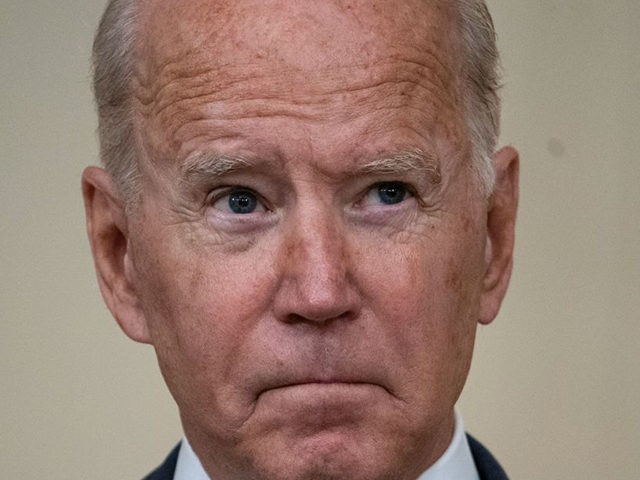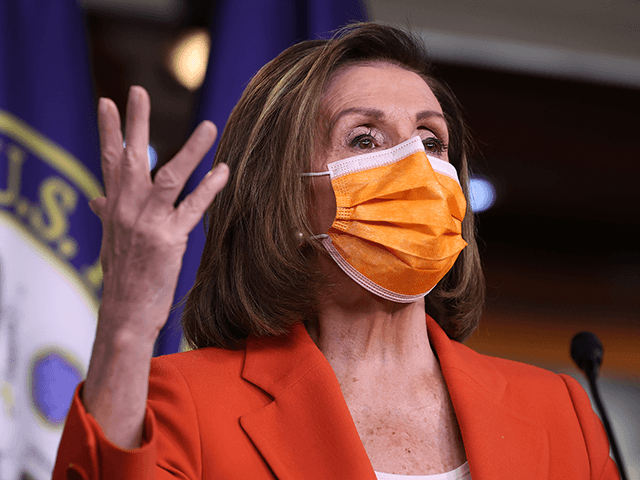Nearly 72 percent of general election voters oppose raising taxes and the national debt, which would result from President Joe Biden’s $3.5 trillion reconciliation package, a Trafalgar Group poll revealed Monday.
“Would you be more or less likely to support President Biden’s proposed $3.5 trillion budget bill if you knew it increases taxes and the national debt?” the poll asked respondents:
Americans highly unlikely to support #budgetbill that raises taxes/national debt. Likelihood to support is as follows:
71.5% less likely,
20.8% more likely,According to @trafalgar_group & @COSProject #Poll of likely ‘22 voters. See Report: https://t.co/6FrNrR5hxs pic.twitter.com/U3jCPjKgb5
— The Trafalgar Group (@trafalgar_group) October 4, 2021
Seventy-one and a half said they would be “less likely” to support the reconciliation package, while nearly 21 percent said they would be “more likely.”
When only Democrats were sampled, 50.2 percent said “less likely and 33.8 percent said “more likely.”
Republicans were far more lopsided in their responses. Ninety-two percent said “less likely,” and only 6.9 percent said “more likely.”
The poll comes as Democrats are infighting over certain provisions in Biden’s massive spending spree. House Speaker Nancy Pelosi (D-CA) reportedly offered a $2.1 trillion reconciliation package to the House Democrats last week, which includes items such as child care, paid leave, health care, and global warming.
But not all the items the far-left wanted were reportedly included in Pelosi’s offer. Items that were vacant in the offer appear to be free community college tuition, subsidized housing, and Medicare expansion to offer dental, vision, and hearing benefits.
Though no deal has been struck, Rep. Alexandria Ocasio-Cortez (D-NY) said Sunday a compromise must occur.
The New York congresswoman explained the far-left is weighing whether their counteroffer should be full funding for less programs or partial funding for a greater amount of programs.
“We do have to compromise with the fact that we have Sens. [Joe] Manchin and [Kyrsten] Sinema who refused to support certain programs for working families,” Ocasio-Cortez said. “And so the compromises and options that we have before us is the short enough funding programs — do you reduce the level of funding? Do you cut programs out together?”
“I think that one of the ideas that’s out there is fully fund what we can fully fund, but maybe instead of doing it for 10 years, you fully fund it for five years,” she added.
The poll was conducted from September 29 to October 1 with 1076 respondents. The margin of error is 2.99 percent.
Follow Wendell Husebø on Twitter @WendellHusebø.



COMMENTS
Please let us know if you're having issues with commenting.